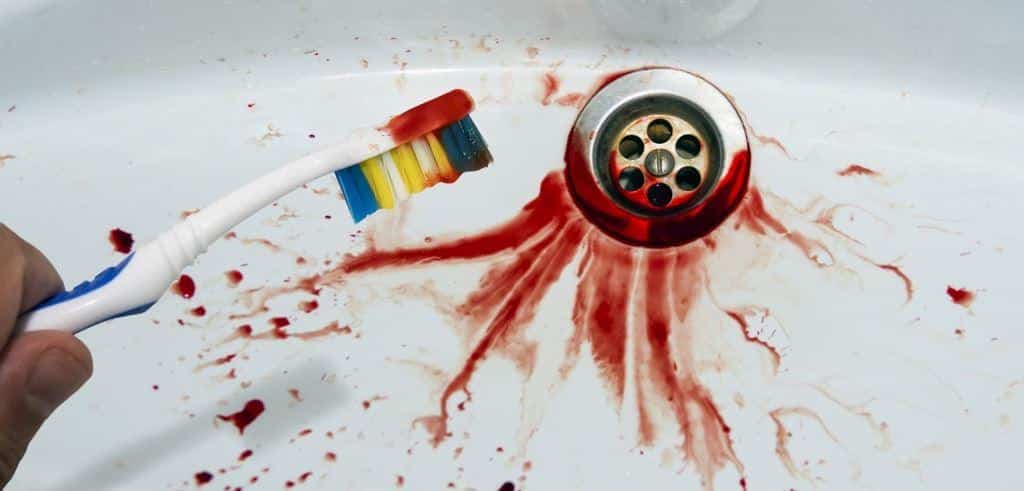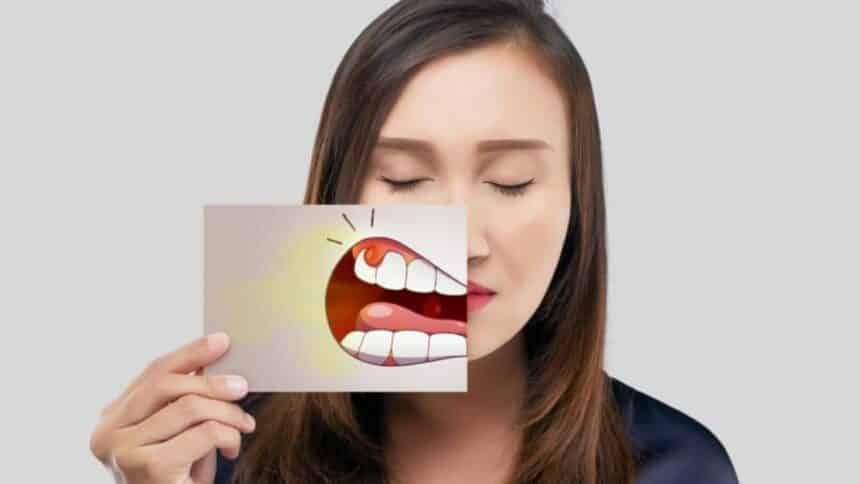Untreated gingivitis can lead to tooth loss. The first symptoms are bleeding gums that become very sensitive to touch. There is also pain when biting and grinding food. But what exactly is gingivitis, what are the causes and symptoms and, most importantly, how can it be avoided?
What exactly is gingivitis?
Gingivitis is a dental ailment associated with periodontal disease. If left untreated, it can lead to tooth loss.
The main cause is poor hygiene The oral cavity and, more specifically, dental plaque. This is a colourless layer of bacteria that settles on the teeth and gums. If not removed, through daily brushing and flossing, it can lead to gum irritation and consequently inflammation.
Over time, plaque, influenced by the minerals in saliva, calcifies to form tartar. This, in turn, can lead to periodontitisand consequent tooth loss. We wrote more about this in our article " Tartar on teeth - find out how it affects your health".
IMPORTANT: Gingivitis affects people with at any age. Unfortunately, parents with young children who avoid brushing their teeth are increasingly coming to the practice with this problem. If your toddler is in this group we recommend our text "10 ways to encourage your child to brush their teeth".
Even if you take regular and meticulous care of your oral hygiene you can still be at risk of gingivitis. Other causes of inflammation can include hormonal changes. This is especially true for pregnant women, during menopause, but also for people during adolescence.
People with diabetes, leukaemia, anorexia and bulimia also need to watch out for their gums.

Most common symptoms
Among the most common symptoms of gingivitis are their bleeding. Therefore, if you notice blood when flossing or brushing your teeth, it is best to make an appointment with your dentist as soon as possible.
Remember, healthy gums don't bleed!
However, often before bleeding occurs, the gums are sensitive to the touch and there is a slight swelling. This can be accompanied by bad breath. Bacteria are to blame here, as they give off an unpleasant odour when decomposing food.
And if you are struggling with unpleasant mouth odour we recommend our article "Causes of bad breath and how to get rid of it„.
In more advanced stages The gums are swollen and severely red, and the pain also becomes worse. Gingival recession may also occur, thereby exposing the necks of the teeth. This can lead to the formation of so-called pathological gingival pockets, in which plaque and food debris will accumulate.

How is gingivitis treated?
Prevention is always better than cure. Therefore, remember to remove plaque regularly by brushing your teeth thoroughly. Remember also that your toothbrush cannot reach every spot, so be sure to floss. This will allow you to clean the interdental spaces and the tooth surfaces under the gums.
And of course, don't forget regular - at least every six months - visits to the dentist.
Many people downplay hygienists and delay the appointment if there are no cavities. This is a big mistake. Regular hygienization is the most effective method of removing plaque and tartar not only from visible areas, but also from those places where neither a toothbrush nor dental floss can reach.
What if you are already struggling with gingivitis?
Make an appointment with your dentist as soon as possible. Your doctor will be able to assess the condition of your gums and, based on this, choose the appropriate treatment.
The first step will be the aforementioned hygienization, which includes four treatments: scaling, teeth sandblasting, polishing and fluoridation. If you want to find out what they consist of read our article "Dental hygiene in the UK - a way to get rid of tartar and have a whiter smile".
Depending on the condition of the gums, the doctor He can also prescribe you anti-inflammatory and antibacterial preparations. For acute gingivitis - an antibiotic.
You can also support yourself with home remedies. These will be rinses of chamomile or sage, or you can rub aloe vera on your gums. Remember, however, that these home remedies should not replace a visit to the dentist.
Gingivitis can be cured, but underestimating the problem can lead to the development of periodontal disease and these to tooth loss.

